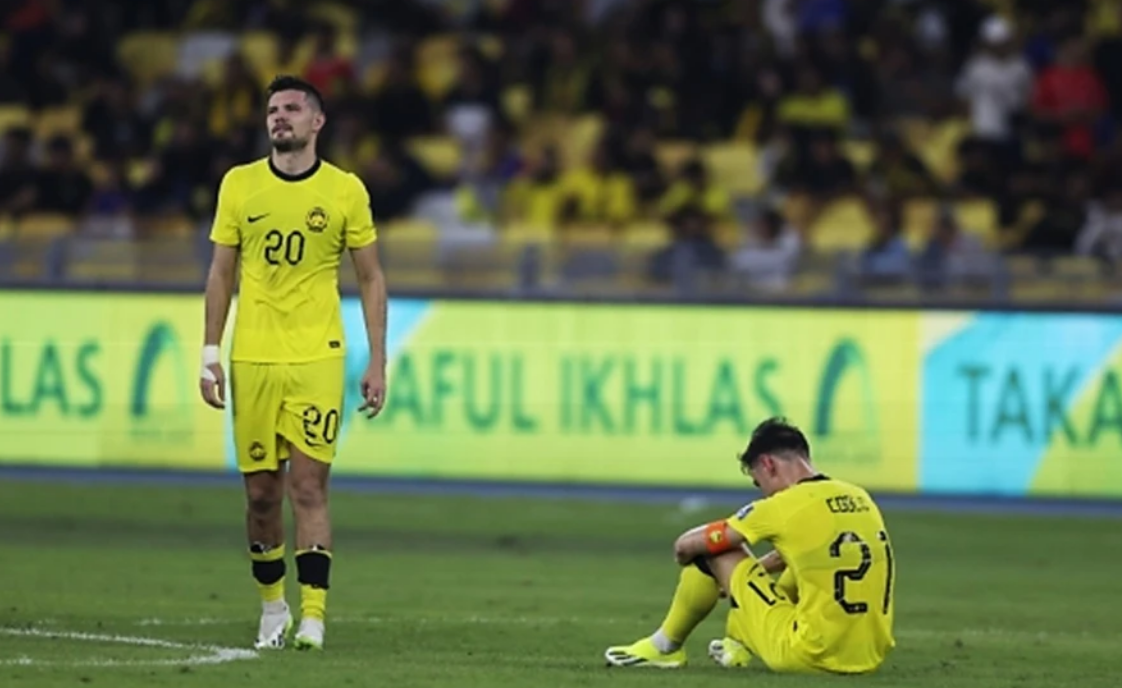Lessons from Malaysia's naturalization of football players

Recently, FIFA revealed detailed reasons for penalizing the Football Association of Malaysia (FAM) related to document fraud involving a group of naturalized players in the Malaysian national team. According to FIFA's conclusion, FAM was found to have forged naturalization documents for seven players with Malaysian bloodlines.
In the report, FIFA also explained why they initially approved eligibility but later punished the Malaysian naturalized players. FIFA stated that from March to June 2025, FAM submitted seven Eligibility Inquiry requests to FIFA for players Gabriel Palmero, Facundo Garcés, Rodrigo Holgado, Imanol Machuca, Joao Figueiredo, Jon Irazabal, and Hector Hevel. Each request included copies of birth certificates of the players' grandparents, indicating they were "born in Malaysia."
Based on the provided information, FIFA initially provisionally confirmed that these players "appeared eligible" to represent Malaysia.
FIFA emphasized that this decision was not final and could be reconsidered if complaints arose.
In this announcement, FIFA presented evidence showing that original documents related to the identities of the seven naturalized players indicated their grandparents were born in Argentina, Brazil, Spain, and the Netherlands—not Malaysia as FAM had submitted.
If FAM continues to appeal, they must submit an appeal to FIFA's Appeal Committee. If rejected, they have the right to take the case to the Court of Arbitration for Sport (CAS).
While awaiting the final ruling, Malaysia's team has not had points deducted nor been forfeited in any matches.
In the third match of the 2027 Asian Cup qualifiers against Laos, Malaysia did not field the seven naturalized players banned by FIFA for 12 months due to rule violations, yet still included other naturalized players in the starting lineup. Malaysia won 3-0, maintaining their top position in Group F with 9 points from 3 matches. The fact that nearly half the lineup consisted of naturalized players shows Malaysia has not abandoned its policy of leveraging foreign-origin talent despite facing potential AFC forfeits for using ineligible players in earlier games.
If FAM fails to file an appeal on time, the case will be handed over to the Asian Football Confederation (AFC) for review and further disciplinary action.
According to AFC representatives, FAM and related clubs may face additional penalties if FIFA confirms any ineligible players participated in AFC-sanctioned competitions.
Two affected tournaments are the 2027 Asian Cup qualifiers and the AFC Champions League Elite, where three naturalized players—Hector Hevel, Joao Figueiredo, and Jon Irazabal—play for Johor Darul Takzim club.
This means Malaysia could be handed a 0-3 forfeit loss by AFC for their 4-0 victory over Vietnam in the second match of Group F on June 10, 2025, where all seven players participated and two (Figueiredo and Holgado) scored in the 49th and 59th minutes.
FAM has a limited number of days from receiving the notification to submit an appeal to FIFA’s Appeal Committee, followed by five additional days to provide detailed documentation.
Football is a source of national pride, uniting players who compete with passion for their country's colors. The widespread naturalization of players reveals significant consequences, potentially diluting the national team's identity. If too many players are of foreign origin, the national element fades. Moreover, not all naturalized players are genuinely committed or have long-term dedication; some view representing the national team merely as a chance to boost their reputation or transfer value.
Furthermore, excessive use of naturalized players can hinder the development of local talent. When key positions are occupied by naturalized players, young domestic players have fewer opportunities to play, directly impacting training and succession processes.
Lessons from Southeast Asian countries like Malaysia and Indonesia show that overreliance on naturalized players leads to unstable national teams and a lack of quality local successors.
The problem is not naturalization itself—since it has become a common trend in modern football—but how it is conducted: rapidly, non-transparently, and lacking evidence of origin or connection. Legally and socially, mass naturalization carries many risks. The nationality review process, origin verification, and personal file checks must be transparent to avoid procedural abuses. Without proper control, disputes, international lawsuits, and penalties may arise.
In Vietnam, several foreign players have proven their ability in the V-League recently, such as Nguyễn Xuân Son, Hendrio, Geovane Magno, and Patrik Lê Giang. Considering their naturalization has helped strengthen the Vietnamese team in positions previously lacking.
However, overusing this approach risks Vietnam's football deviating by prioritizing short-term success over identity and sustainable development.
Instead of chasing quick results, Vietnam needs a selective and clearly guided naturalization strategy (which VFF is currently pursuing). Eligibility should be based on specific criteria: players with long-term V-League participation, cultural integration, and genuine desire to contribute to the national team.
Malaysia chose a shortcut to catch up with rivals—and now they may pay a heavy price for fraudulent behavior and forged documents during the naturalization of seven foreign players in the national team. Malaysia’s illegal naturalization case is no longer just a Southeast Asian issue; it could become one of the biggest football scandals worldwide if investigations continue after FAM’s final appeal deadline.


Wonderfulshortvideo
🥶🥶


The Nuno Mendes x Cristiano Ronaldo link-up 😮💨🔗


Harry Kane is the BEST striker Thomas Tuchel has EVER worked with 👀🏴


User esportapi has posted a video.


Marcus Rashford pays tribute to Cristiano Ronaldo 👏


Cristiano Ronaldo is the


User FieldFrenzy has posted a video.








 Links
Links
 Contact
Contact
 App
App


